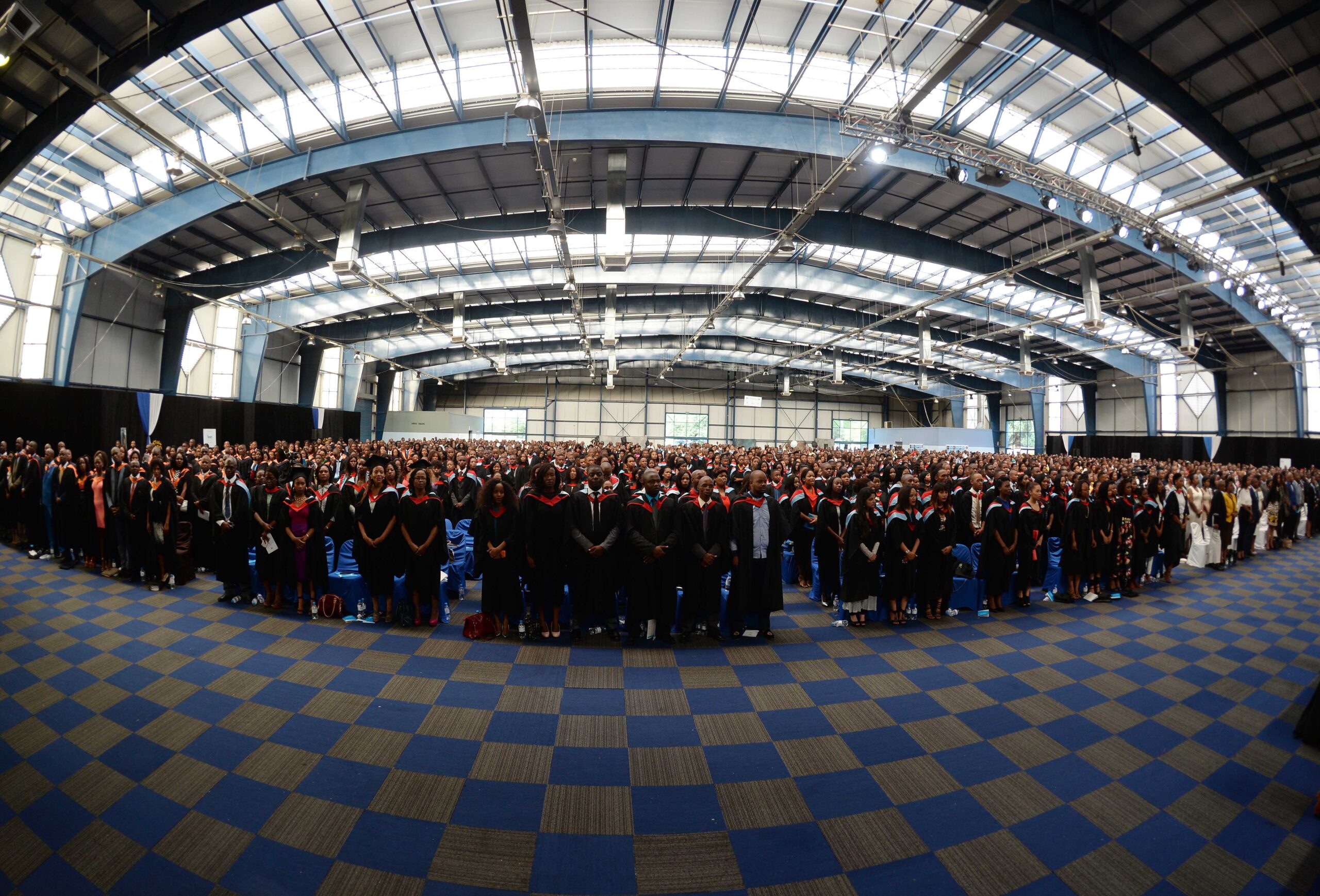- Minister says it is a hefty burden at P16m
- Unions say proposal is a bad move in light of COVID-19
- SRC president at UB supports initiative
LAONE MOLELO
The government may cut a sizable number of state-funded tertiary students from receiving monthly allowances, The Botswana Gazette has established. In an exclusive interview with the Minister of Tertiary Education, Research, Science and Technology, Douglas Letsholathebe, it emerged that the government is planning to consult all stakeholders in an effort to lift the financial burden, which currently stands at P16 million per month, off itself.
Minister Letsholathebe said the discussion will involve the Botswana Unified Revenue Service (BURS) to help with a framework for linking student applications with the earnings of parents. “We will also include social workers in this process to ensure that students are not disadvantaged because you and I agree will agree that there are wealthy parents out there who can assist their children financially,” he asserted.
The hope is that the first exercise will allow the government to review tertiary allowances for disadvantaged students continuously, he added. “We know that there are students who desperately need the allowance more than others. To some it is not even enough to cater for their needs,” the minister noted.
Minister Letsholathebe disclosed that the consultative process on this would have started earlier had the outbreak of COVID-19 not disrupted the plans. “We are just waiting for the virus situation to get better before we roll up our sleeves and get on with the task,” he said. “Consultations shall be done through councils where councillors will represent their respective communities.”
The MP for Mogoditshane, Tumiso Rakgare, who is also the Minister of Youth, Sports and Culture Development, recently told Parliament that it was high time parents assumed the responsibility for payment of their children’s tuition fees.
Quantitative analyst at First National Bank Botswana (FNBB), Gomolemo Basele, says although the decision is a reflection of pressure on the government, it is a bad move in light of the current economic climate. “What happens is that if unemployment rises, there is more pressure on individual households,” Basele told The Botswana Gazette in an interview. “If I lose my job, for example, I will move back to my mother’s house. She is going to feed and clothe me. If I have a younger sibling in a tertiary school who needs his or her allowances paid by our mother, you can imagine the kind of pressure on our households while taxes are also going up and businesses are under pressure.”
The Secretary General of the Botswana Federation of Trade Unions (BFTU), Thusang Butale, saw the development in a similar light and described consideration of it now as “the worst timing” because most parents are on half salaries owing to the impact of COVID-19 and are struggling with bills. “Most of the workers cannot afford this because taxes and rentals are going up,” said Butale. “The government must account because 37% of the budget that has reportedly gone missing through corruption is a lot of money.”
In the same vein, the president of the Botswana Public, Private and Parastatal Sector Unions, Johannes Tshukudu, rejected the proposal because the current economic situation does not augur well for the cost-sharing model. “Government cannot think like that when people continue to lose their jobs and when the cost of living continues to rise. It is absolutely unnecessary to even consider it,” Tshukudu said, adding that corruption is to blame for the proposal.
At Alliance for Progressives (AP), Secretary General Dr Phenyo Butale said the government has become oblivious of the current financial situation of Batswana in which many people cannot earn a living because of COVID-19. “Many businesses are folding and people are losing their jobs,” Dr Butale said. “However, this is a conversation that they should have with a view to introducing this thing gradually and at an opportune time, not during a crisis. Right now the government should be looking at ways of helping Batswana to survive the current storm.”
For the president of the Botswana Patriotic Front, Biggie Butale, the idea of cost-sharing is a commendable one but now is not the time to be burdening people with more cost recovery measures. “In times of recession, the government should instead try to liquidate the economy because the Bank of Botswana has lowered interest rates to try and encourage banks to lend so that there is more liquidity in the economy,” said Biggie, adding that cost recovery measures like increasing taxes and levies should only be considered when the recession is over.
Meanwhile, the president of the Student Representative Council (SRC) of the University of Botswana, Bokang Dumelang, has welcomed the proposal, saying there are capable parents who can afford to share the responsibility of student allowances with the government. “We need to be patriotic as Batswana because in some countries, parents open bank accounts for their children to assist them financially during their schooling years,” said Dumelang.
At the Botswana University of Agriculture and Natural Resources, SRC president Ernest Arabang said the arrangement will have a negative impact on many livelihoods. “Government recently increased rentals and transport fares,” Arabang pointed out. “This has weighed down on families already. To burden parents with providing their children with living allowances is therefore a terrible move.”
Tertiary student Kabo Moeng says COVID-19 has impacted the earnings of both his parents and they cannot afford to pay his monthly allowance. A working mother of two children at university, Kamogelo Modise, says she cannot afford the additional weight because she has loans to service and her job is precarious.

